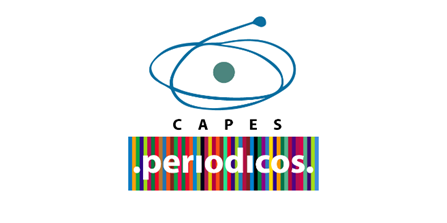PERSON AND SOCIETY: PRIVATE AND PUBLIC AUTONOMIES EN THE PHILOPSHY OF JÜRGEN HABERMAS
DOI:
https://doi.org/10.14210/rdp.v18n2.p356-371Keywords:
Private autonomy, Public autonomy, Law, Government, Democratic deliberationAbstract
Contextualization: The possibility of divergent claims based on the notions of individual rights and collective demands is object of study in Philosophy, Law and Social Sciences. The contrast between individual and society in the Rule of Law is seen, by the liberal paradigm, through the prevalence of individual rights over government intervention and actions that favor collective well-being, while the community-republican paradigm highlights the insertion of the person in the collective grouping as an inseparable element for understanding the rights holder and rejecting individualistic pretensions. Jürgen Habermas offers the possibility of reconstructing such arguments based on the idea of the co-originality of private and public autonomies.
Objectives: The article aims to verify whether the hypothesis of the co-originality of private and public autonomies is able to offer an answer to the problems arising from theories that affirm the prevalence of private autonomy or public autonomy in a democratic regime with observance of human rights.
Methodology: The methodology used the hypothetical-deductive method, adopting a bibliographical review as a research technique.
Results: it was found that private and political autonomies are created concomitantly as indispensable assumptions for democratic practice whose result is backed by the expected assent of all those potentially affected, as participants in rational discourses in the deliberation process. The conclusion that individual and political rights are jointly asserted so that the person can freely form the convictions to be expressed in democratic deliberation, which, in turn, legitimizes their subjective rights, also implies the rejection of positions that favor a perspective strictly liberal or republican in the study of rights and the relationship between individual and government.
Downloads
References
ARATO, Andrew. Reflexive laws, civil society, and negative rights. Cardozo Law Review, n. 771, p. 785-789, 1995-1996.
BAUMAN, Zygmunt. Modernidade e Ambivalência. Trad. de Marcus Penchel. Rio de Janeiro: Jorge Zahar Editor, 1999.
BITTAR, Eduardo C.B. Justiça e liberdade na filosofia do direito de Jürgen Habermas. Revista dos Tribunais, São Paulo, v. 918, p. 225-261, abr. 2012.
CITTADINO, Gisele. Pluralismo, Direito e Justiça Distributiva. Elementos da Filosofia Constitucional Contemporânea. 3. ed. Rio de Janeiro: Lumen Juris, 2004.
HABERMAS, Jürgen. Paradigms of Law. Cardozo Law Review, n. 771, p. 771-784, 1995-1996.
__________________. Direito e Democracia: entre Facticidade e Validade. Vols. 1 e 2. 2. ed. Trad. de Flávio Beno Siebeneichler. Rio de Janeiro: Tempo Brasileiro, 2003.
__________________. Écrits Politiques: Culture, Droit, Histoire. Trad. de Christian Bouchindhomme e Rainer Rochlitz. Paris: Flammarion, 1999.
__________________. Remarks on Erhard Denninger’s Triad of Diversity, Security, and Solidarity. Trad. de Christopher Long e William E. Scheuerman. Constellations, v. 7, p. 522-528, 2000. DOI: https://doi.org/10.1111/1467-8675.00207
__________________. Era das Transições. Trad. de Flávio Siebeneichler. Rio de Janeiro: Tempo Brasileiro, 2003.
__________________. A Inclusão do Outro: Estudos de Teoria Política. 2. ed. Trad. de George Sperber, Paulo Astor Soethe, Milton Camargo Mota. São Paulo: Loyola, 2004.
MACINTYRE, Alasdair. Justiça de quem? Qual racionalidade?. 2. ed. Trad. Marcelo Pimenta Marques. São Paulo: Loyola, 2001.
MAUS, Ingeborg. Liberties and popular sovereignty: on Jürgen Habermas’s reconstrusction of the system of rights. Cardozo Law Review, n. 771, p 825-882, 1995-1996.
MOREIRA, Luiz. “Direito, procedimento e racionalidade.” In: MOREIRA, Luiz (org.) Com Habermas, contra Habermas: direito, discurso e democracia. São Paulo: Landy, 2004, p. 177- 200.
ROSENFELD, Michel. Can rights, democracy, and justice be reconciled through discourse theory? Reflections on Habermas’s proceduralist paradigm of law. Cardozo Law Review, n. 771, p. 791-824, 1995-1996.
TAYLOR. Charles. Sources of the Self. The making of the Modern Identity. Massachusetts: Harvard University Press, 1989.
TOURAINE, Alain. Crítica da Modernidade. Trad. de Elia Ferreira Edel. Petrópolis: Vozes, 1994.
Downloads
Published
How to Cite
Issue
Section
License
Na qualidade de autor(es) da colaboração, original e inédita, sobre o qual me(nos) responsabilizo(amos) civil e penalmente pelo seu conteúdo, após ter lido as diretrizes para autores, concordado(amos) com o Regulamento da Revista Eletrônica Direito e Política e autorizo(amos) a publicação na rede mundial de computadores (Internet), permitindo, também, que sua linguagem possa ser reformulada, caso seja necessário, sem que me(nos) seja devido qualquer pagamento a título de direitos autorais, podendo qualquer interessado acessá-lo e/ou reproduzi-lo mediante download, desde que obedeçam os Direitos Autorais.

















